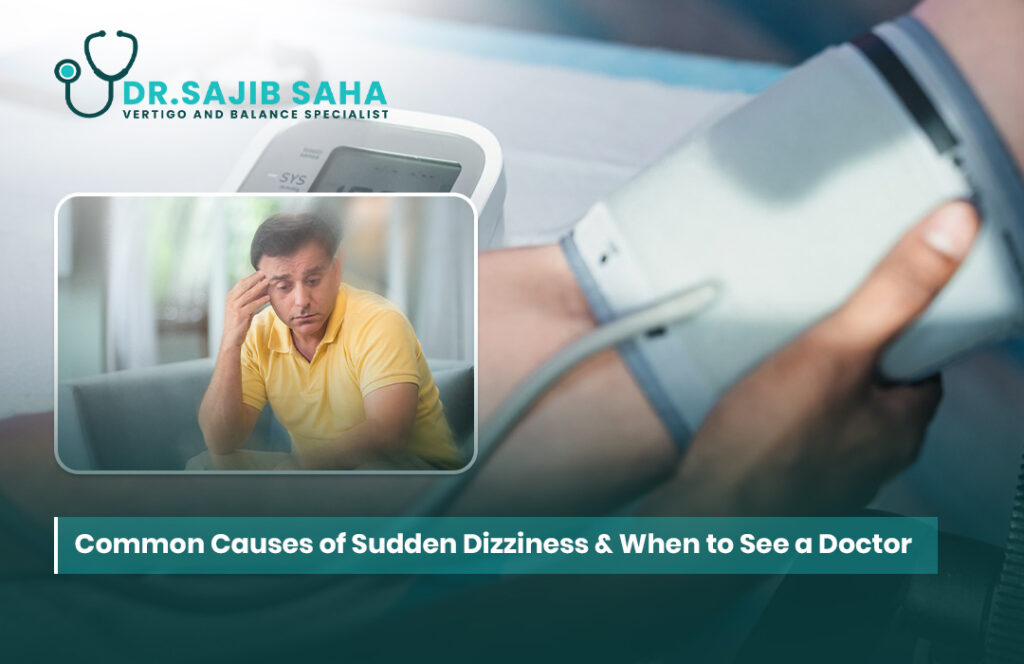Dizziness is a common yet concerning symptom that can appear suddenly and disrupt daily life. While occasional lightheadedness may not be serious, frequent or sudden dizziness can indicate an underlying medical condition that requires professional attention. Understanding the causes, warning signs, and when to consult a doctor can help you protect your health and well-being.
What Is Dizziness?
Dizziness is a broad term often used to describe sensations such as lightheadedness, imbalance, or the feeling that the room is spinning (vertigo). It is not a disease itself but a symptom of various conditions affecting the inner ear, brain, heart, or blood circulation.
Common Causes of Sudden Dizziness
1. Inner Ear Problems (Vestibular Disorders)
The inner ear helps control balance. Issues such as benign paroxysmal positional vertigo (BPPV), Ménière’s disease, or vestibular neuritis can trigger sudden spinning sensations and loss of balance.
2. Low Blood Pressure
A sudden drop in blood pressure, especially when standing up quickly (orthostatic hypotension), can cause temporary dizziness or fainting.
3. Dehydration
Lack of fluids in the body reduces blood flow to the brain, leading to lightheadedness, especially after exercise, hot weather, or illness.
4. Low Blood Sugar (Hypoglycemia)
People with diabetes or those who skip meals may experience dizziness due to low glucose levels in the blood.
5. Heart-Related Issues
Arrhythmias, heart valve problems, or reduced blood flow to the brain can cause dizziness and may require urgent medical attention.
6. Neurological Disorders
Conditions such as migraine, stroke, or multiple sclerosis can present with dizziness along with other symptoms like headaches, vision problems, or weakness.
7. Medication Side Effects
Certain medications—such as blood pressure drugs, sedatives, or antibiotics—may cause dizziness as a side effect.
When Should You See a Doctor?
While dizziness is often temporary, it is important to seek medical advice if you experience:
-
Dizziness that occurs suddenly and repeatedly
-
Severe spinning sensation (vertigo) lasting more than a few minutes
-
Fainting or near-fainting episodes
-
Associated symptoms like double vision, slurred speech, chest pain, or difficulty walking
-
Dizziness after a head injury
How Doctors Diagnose Dizziness
A healthcare professional may recommend:
-
Physical examination and medical history
-
Hearing and balance tests
-
Blood tests to check for glucose or anemia
-
Imaging tests (MRI/CT scan) if neurological issues are suspected
Treatment Options
Treatment depends on the underlying cause and may include:
-
Vestibular therapy or exercises for inner ear conditions
-
Hydration and dietary adjustments
-
Medication to control vertigo, blood pressure, or blood sugar levels
-
Lifestyle changes such as stress management, sleep improvement, and avoiding sudden movements
Final Thoughts
Sudden dizziness should never be ignored. While in many cases it is harmless, persistent or severe dizziness can indicate a serious health problem. If you experience repeated episodes, consult a qualified ENT specialist or neurologist for a proper diagnosis and treatment.
